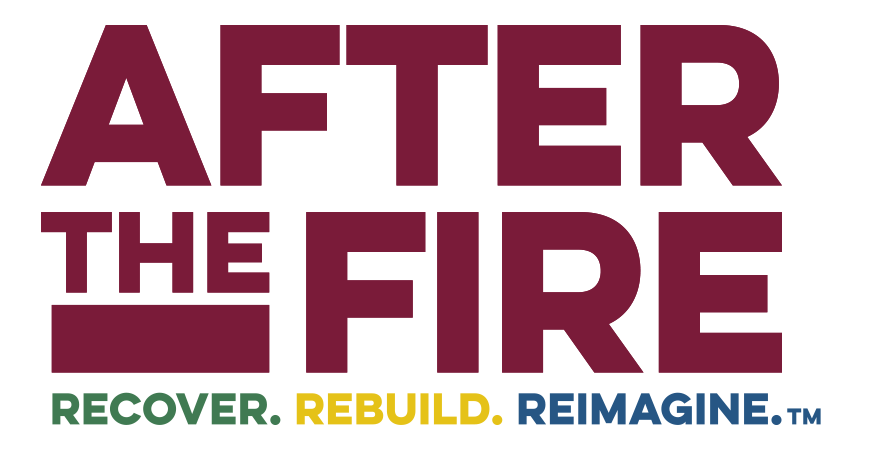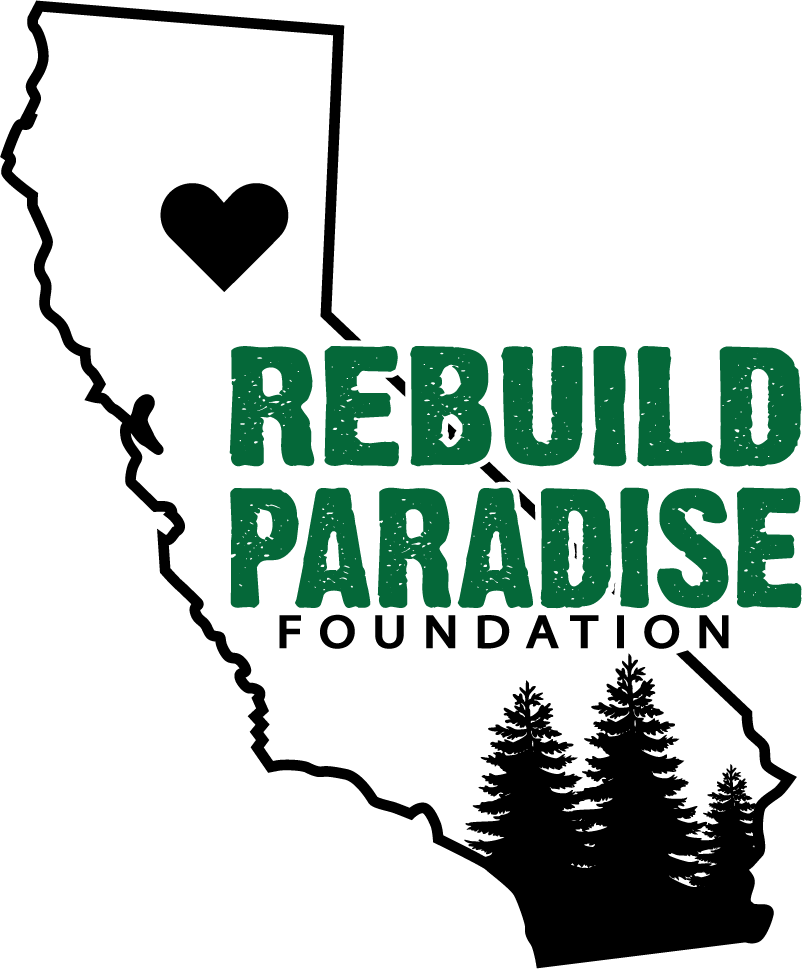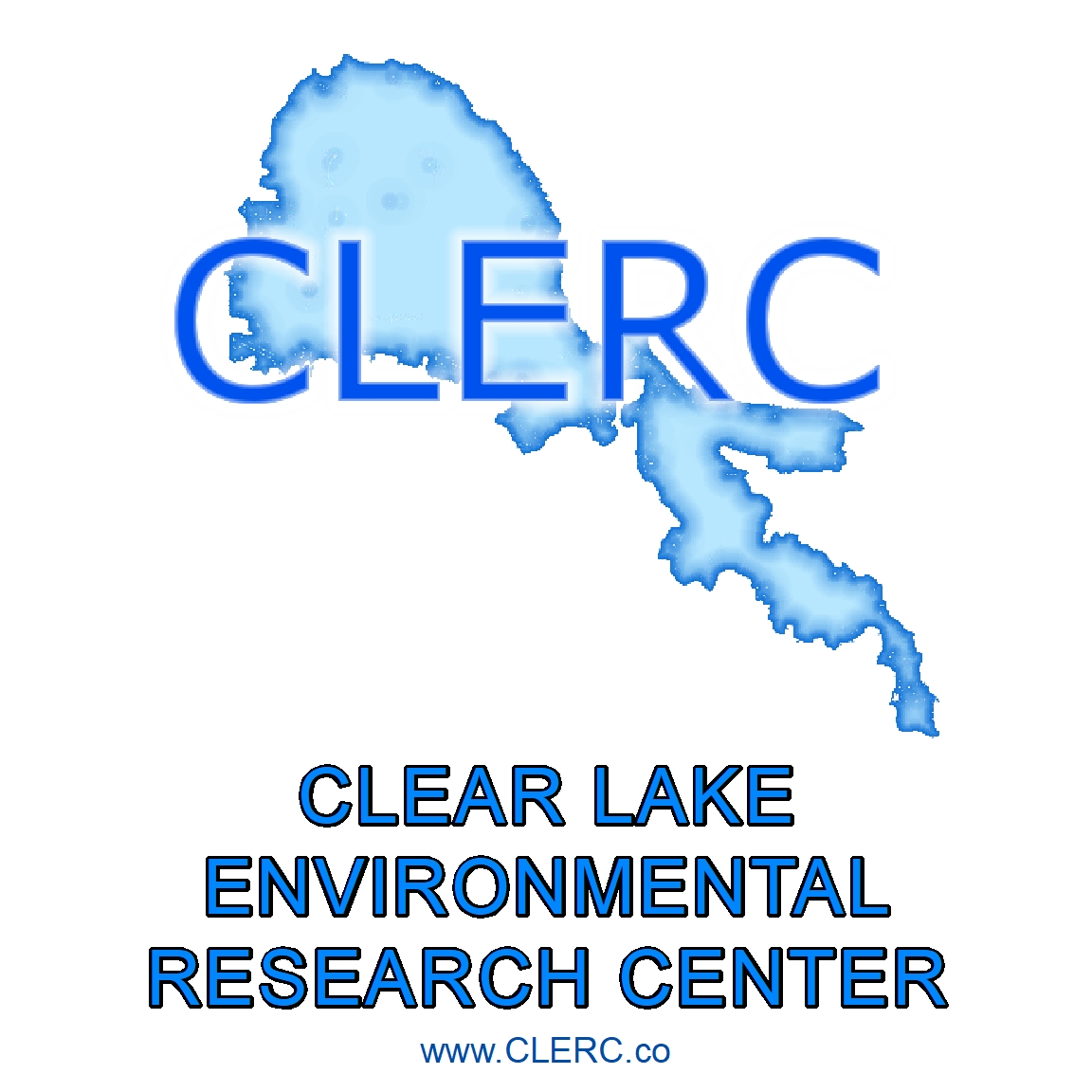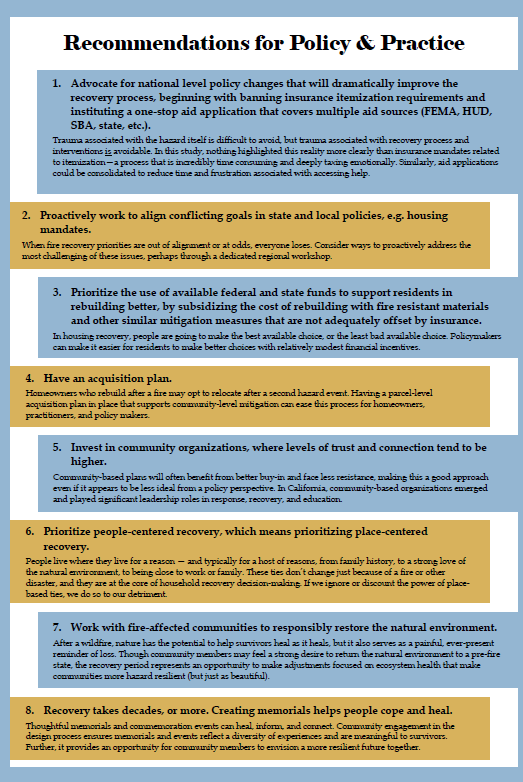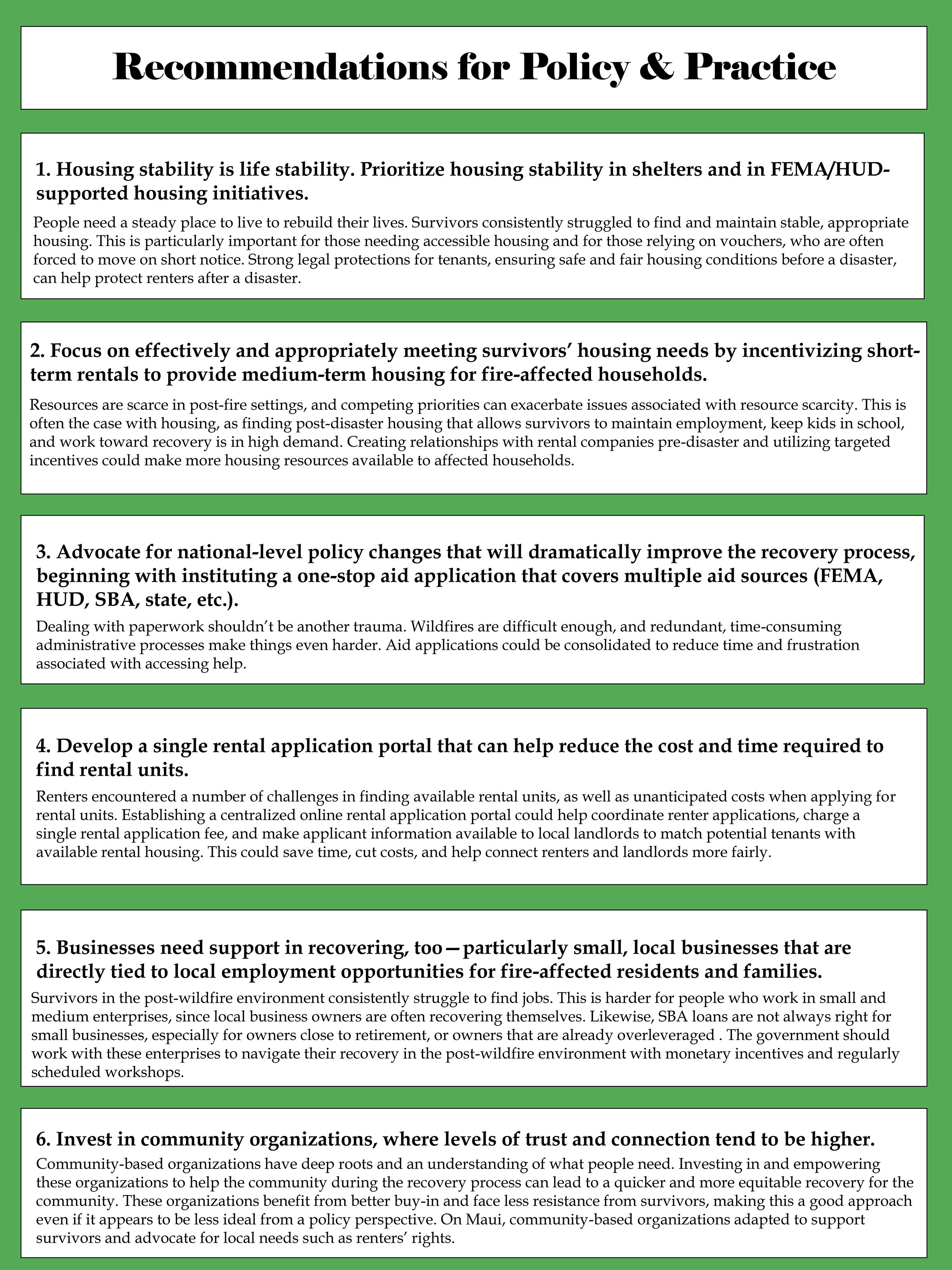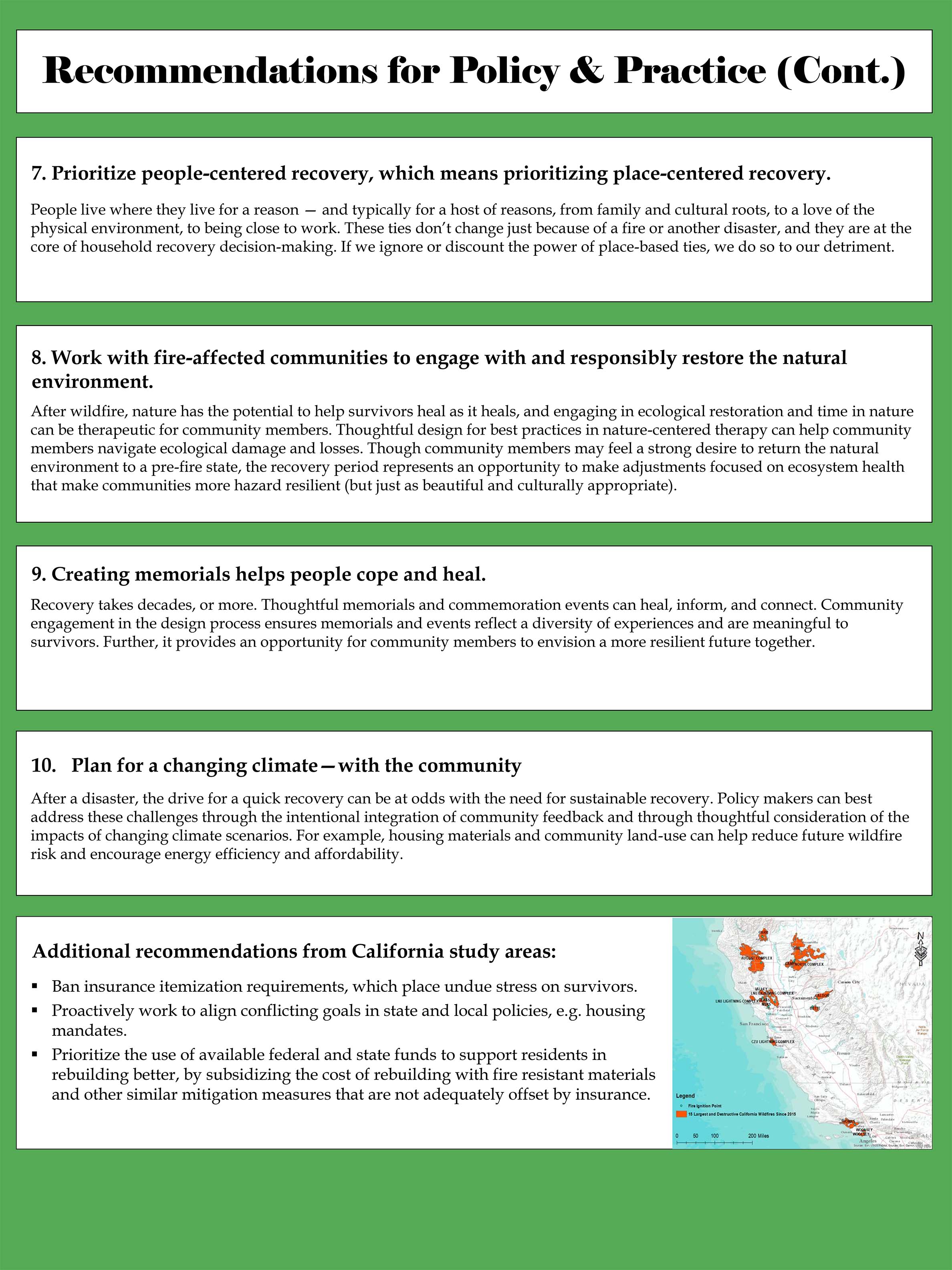A Mixed Methods Study of Residential Adjustment Following Wildfires
Haga clic aquí para la versión español
About the Study
After a major disaster, such as a wildfire, affected homeowners must make a difficult decision: do they rebuild their home as it was before the disaster, rebuild but in a way that better protects them from future disasters, or relocate to a new home elsewhere? These are complicated decisions that impact homeowners and communities for many years. Such decisions are influenced by many factors, including household income, access to insurance, location of employment, the need for local services such as medical care or schools, and connections to family and friends. One underlying factor that affects all these others is place attachment, or the emotional and functional ties that people have to the place where they live.
This study focuses on understanding how place attachment influences the decisions people make after disasters, specifically decisions about where they live and whether they invest in measures that reduce their risk to future disasters. Focused on four northern California counties (Sonoma, Lake, Butte, Plumas) and Maui County, Hawai’i, that have been affected by recent, major wildfires, findings from this study will help local governments and practitioners develop programs that better support households that are affected by disasters and inform community planning for hazards associated with climate change.
This collaborative research is supported by funding from the National Science Foundation (Award #2135424, Award #2135440, Award # 2519827).
Phase 1: Methods
California:
This study is one of the first to use a method called photovoice to examine post-disaster recovery. The method has been used widely in public health and education, but it has rarely been used to study disasters.
Photovoice is a participatory action research method, meaning participants actively create the data that researchers use to understand a problem. Simply put, photovoice involves telling stories about one's experience through pictures. Researchers ask participants a few broad questions that participants answer by taking photographs during their daily routines. Participants later discuss the photographs they have taken over an interview with researchers. In this study, photovoice has enabled researchers to better understand how homeowners impacted by wildfire navigated the complex process of housing recovery. In Phase 2 of the project, we will continue by conducting photovoice with renters.
Maui:
For Maui, we used Talk Story as a method to learn about residents’ experiences of recovery since the 2023 wildfires. Talk Story is a familiar form of conversation in Hawai’i that involves the sharing of memories. Talk Story sessions were held with participants virtually (via Zoom or Teams). Participants were encouraged, but not required, to share photos of their recovery journeys to help the research team better understand their perspectives. Both renters and homeowners participated.
We continue to hold Talk Story sessions on Zoom with residents whose primary residence was damaged or destroyed in the 2023 Lahaina Fire. You must be 18 or older to participate. To learn more and see if you qualify, please answer this questionnaire.
Community Share-outs:
Giving back to the community is a cornerstone of participatory research. In October 2024, the research team traveled back to California to share our findings with community members in our focal counties. We received feedback on our findings and discussed next steps to move the research into action. In August 2025, the research team co-led a similar in-person share-out in Maui with local partner Maui Housing Hui.
Phase 2: Seeking Renters for Photovoice
Are you from Butte or Sonoma County, California, and interested in participating?
We are recruiting renters to participate in the study from Butte and Sonoma counties whose primary residence was damaged or destroyed by wildfire between 2015 and 2025. You must be 18 or older to participate. To learn more and see if you qualify, please answer the questionnaire below.
Questionnaire: Click here to complete our questionnaire.
Community Partners
News & Updates
Share-out Sessions
In October 2024, the team returned to northern California and shared our findings at four town hall events in Santa Rosa (Sonoma County), Middletown (Lake County), Greenville (Plumas County), and Paradise (Butte County). Community members had an opportunity to view and react to 10 posters that depicted major themes across all locations. We also shared ideas for policy and practice recommendations in a separate poster.
In August, 2025, the team traveled to Maui and shared our findings at a town hall at the Cameron Center in Wailuku. Our local partner Maui Housing Hui co-led the session, which featured 4 posters with themes specific to Maui and 5 posters (Themes 5-9) that were common across our communities in California and Hawaii. We compiled and shared ideas for policy and practice recommendations that were unique to Maui. These suggestions emphasized renters’ needs, since a majority of Lahaina fire survivors (and our participants) were renters.
All posters are included below as downloadable PDFs. If you were unable to attend one of our town hall events, but would like to leave us feedback, please use the survey link next to the poster you would like to comment on.
California

Details of the study and methods.
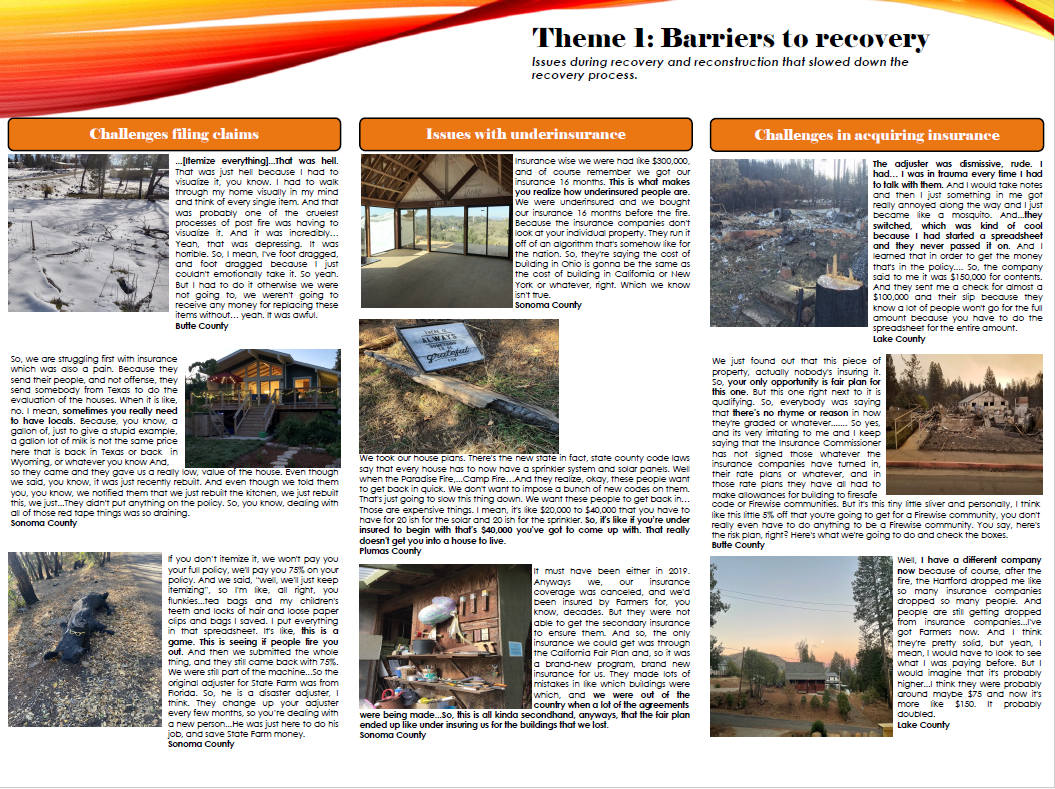
Issues that slowed down the recovery or rebuilding process.
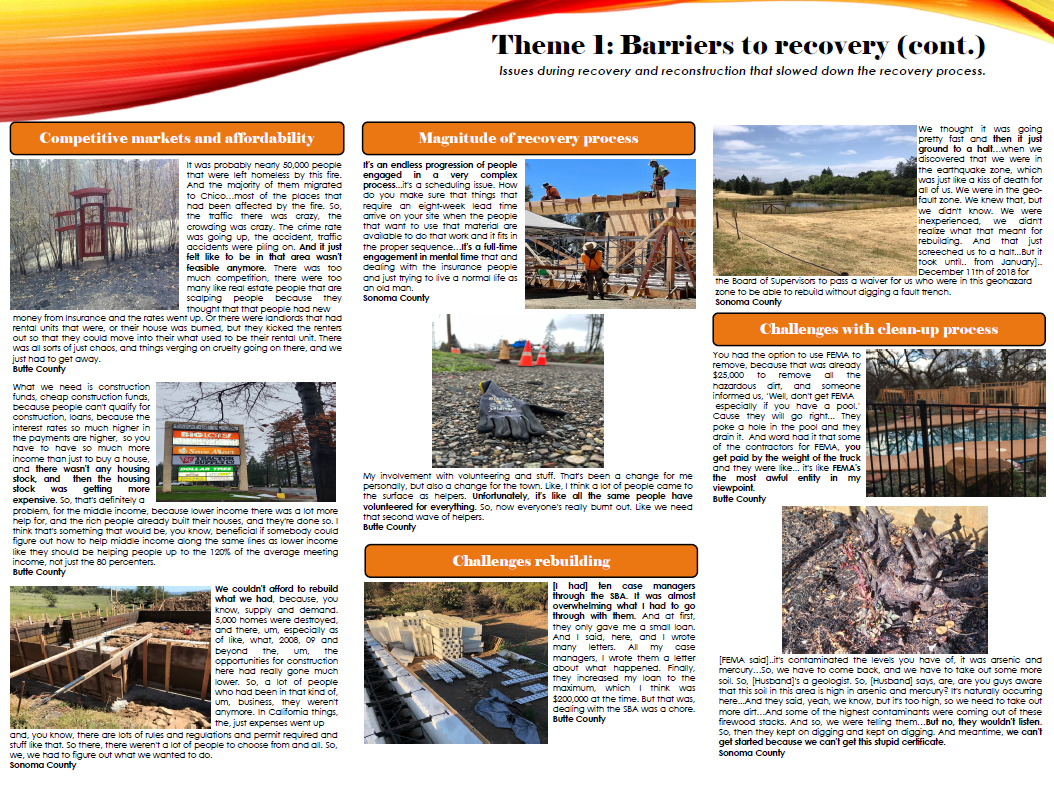
Issues that slowed down the recovery or rebuilding process.
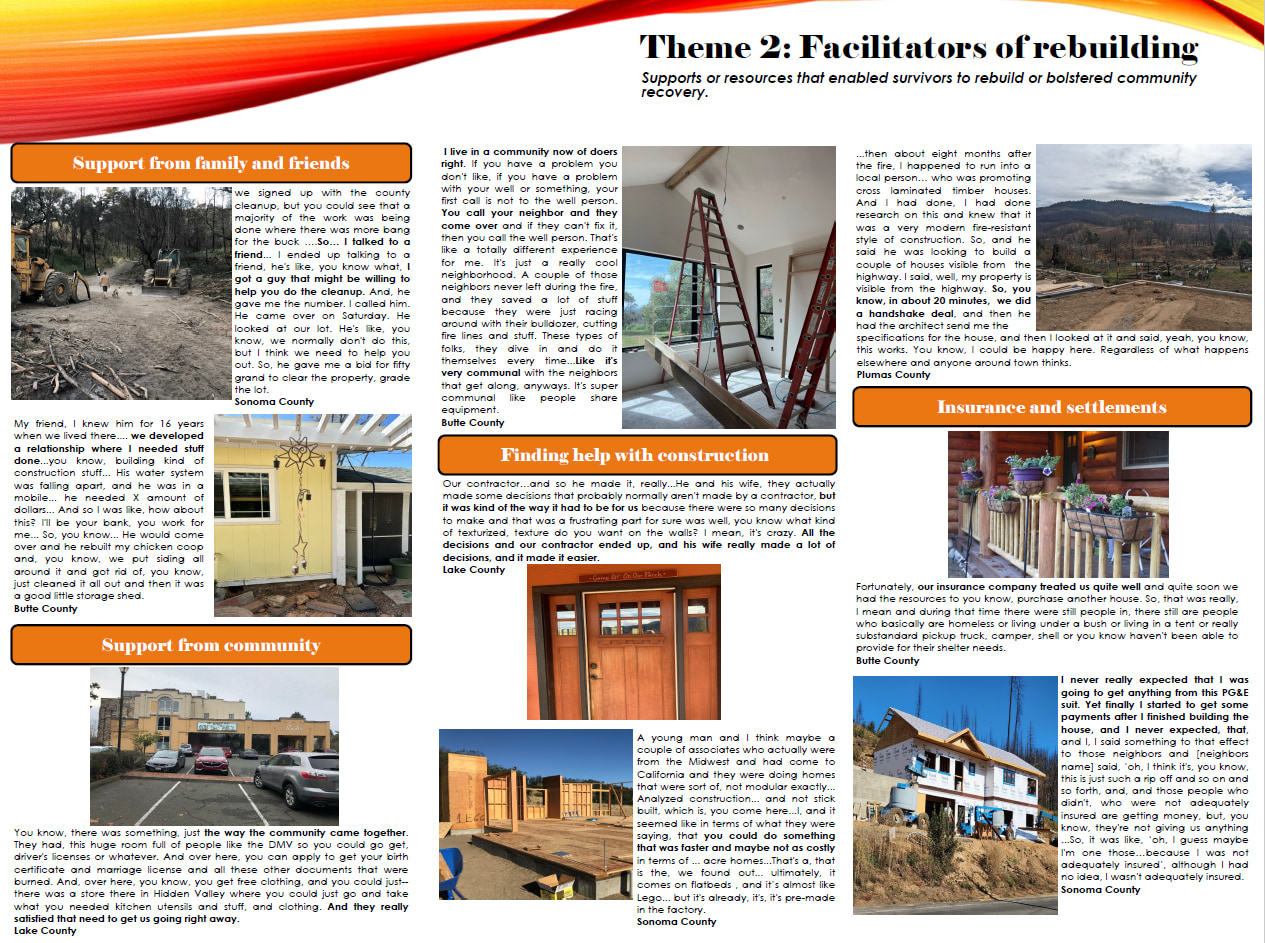
Supports or resources that enabled survivors to rebuild or that bolstered community recovery.
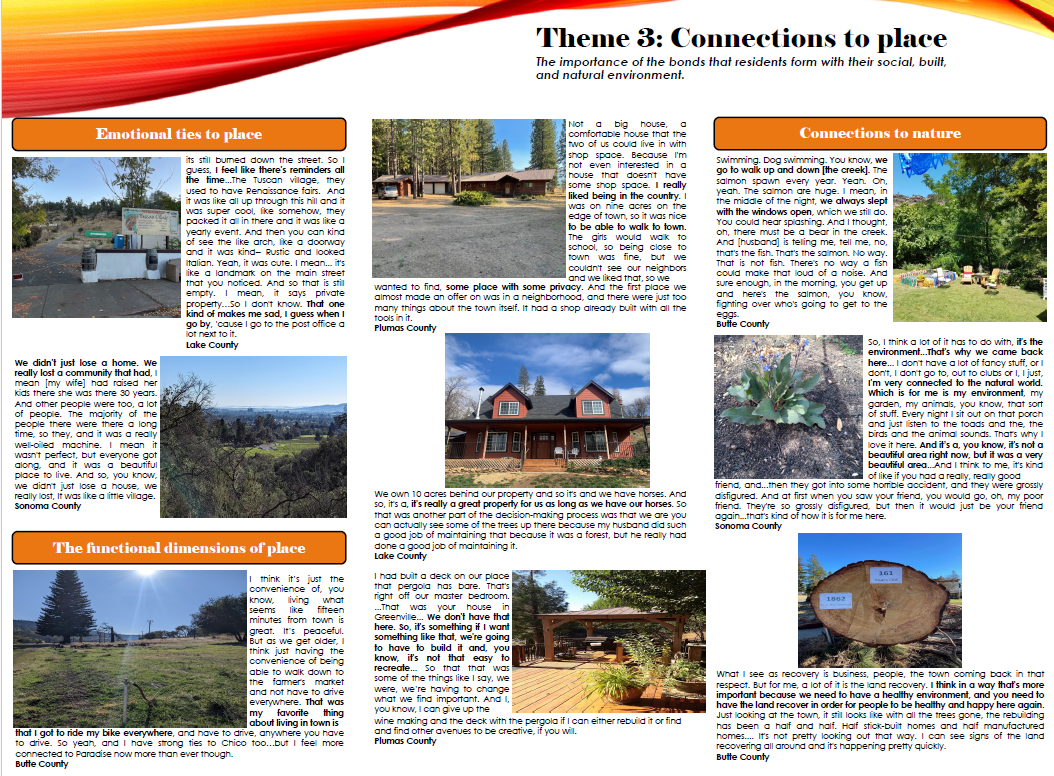
Importance of bonds between residents and their social, built, and natural environments.
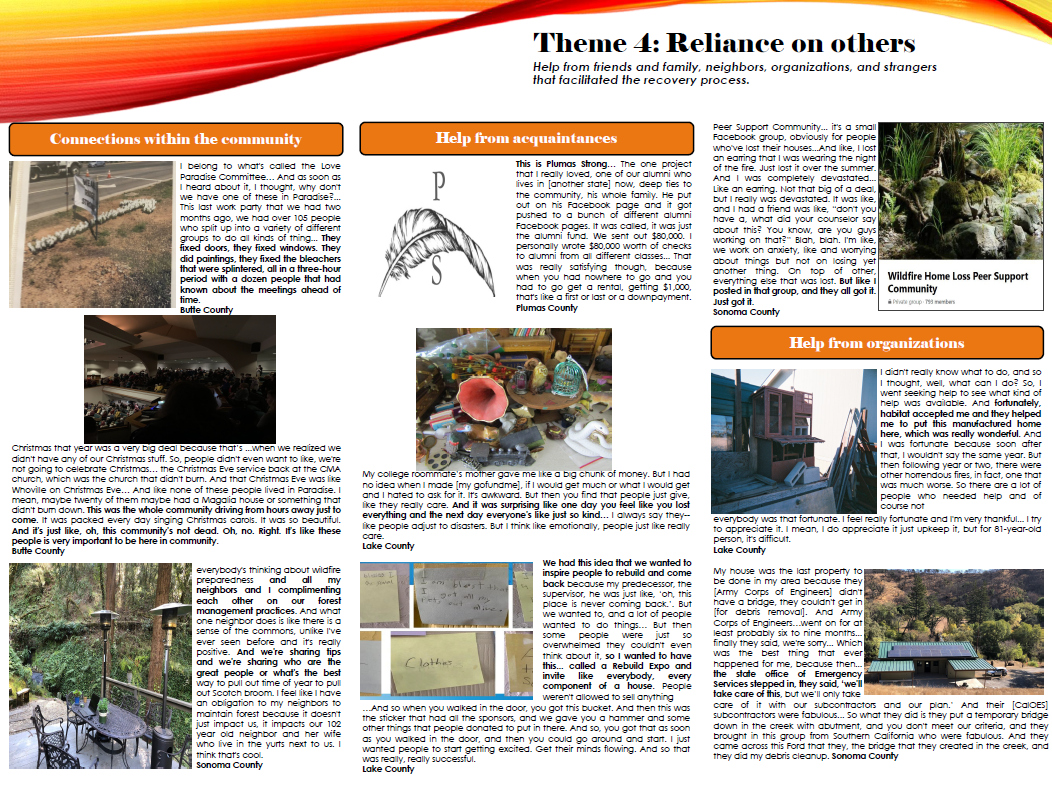
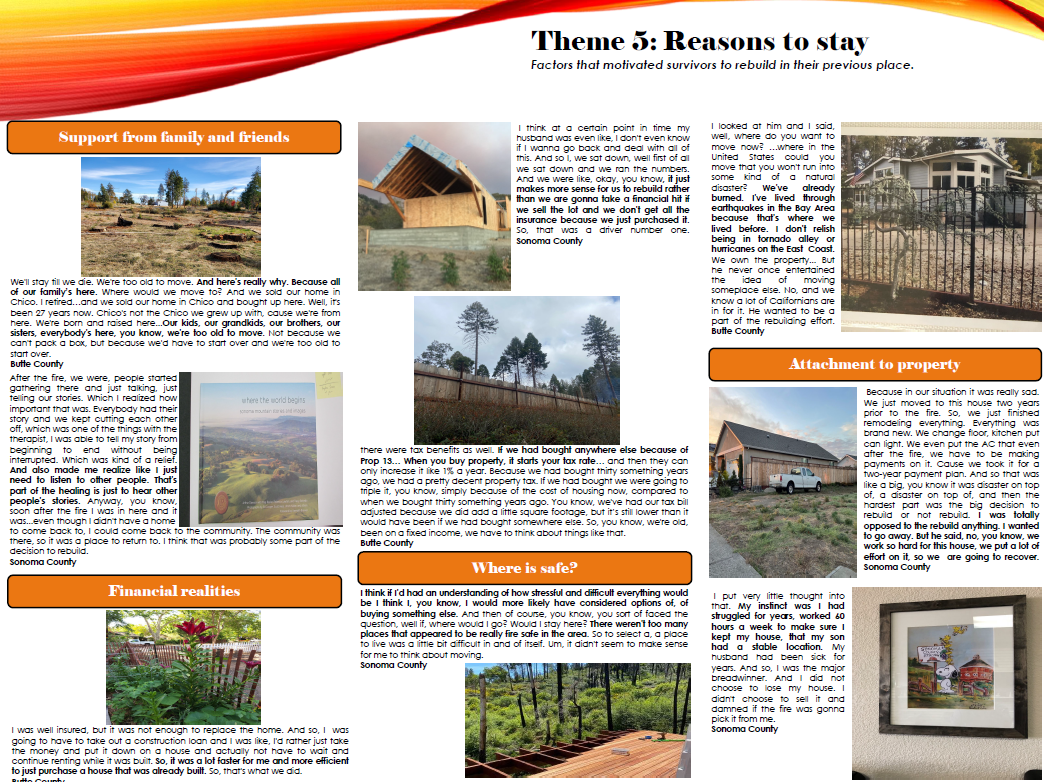
Survivors’ reasons to stay in the community after the fire.
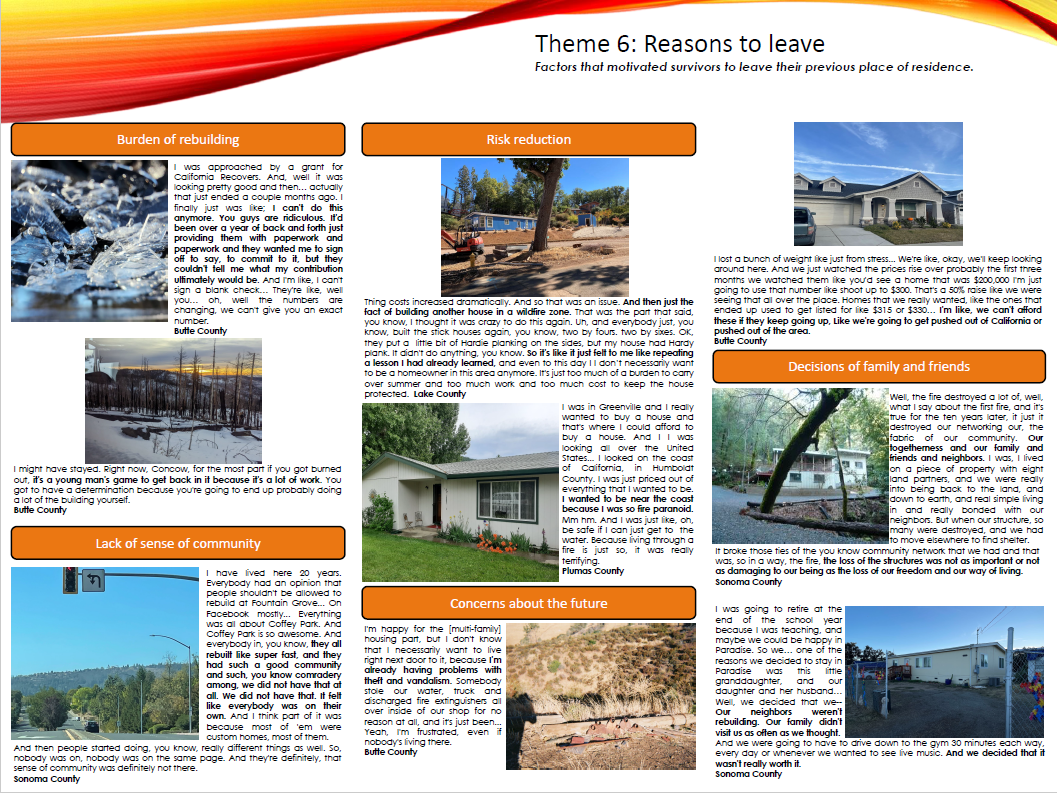
Survivors’ reasons to leave their previous place of residence.
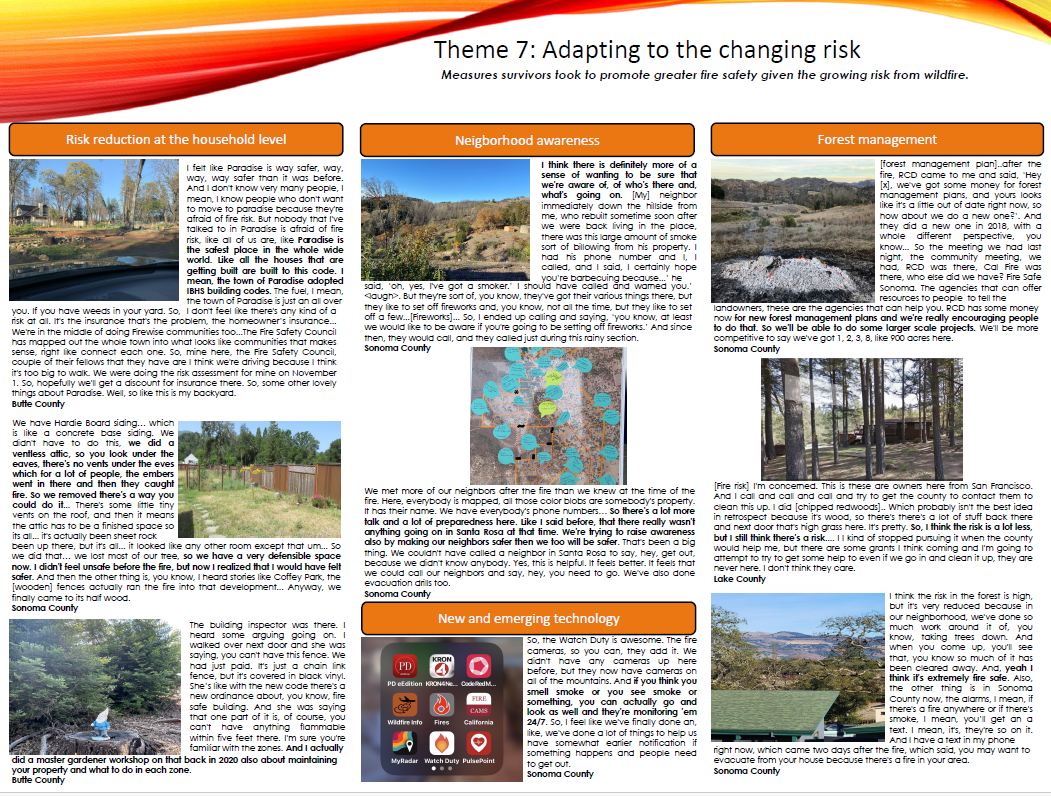
Things survivors did to promote greater fire safety given the growing risk from wildfire.
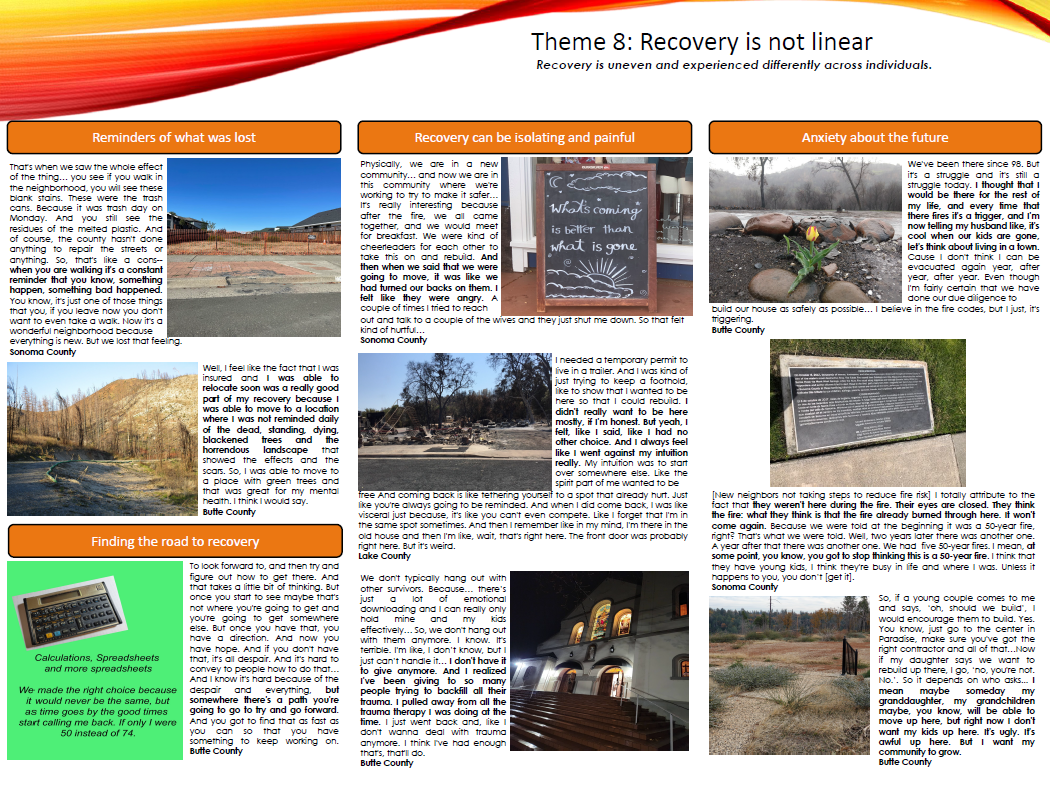
Recovery is uneven and experienced differently across individuals.
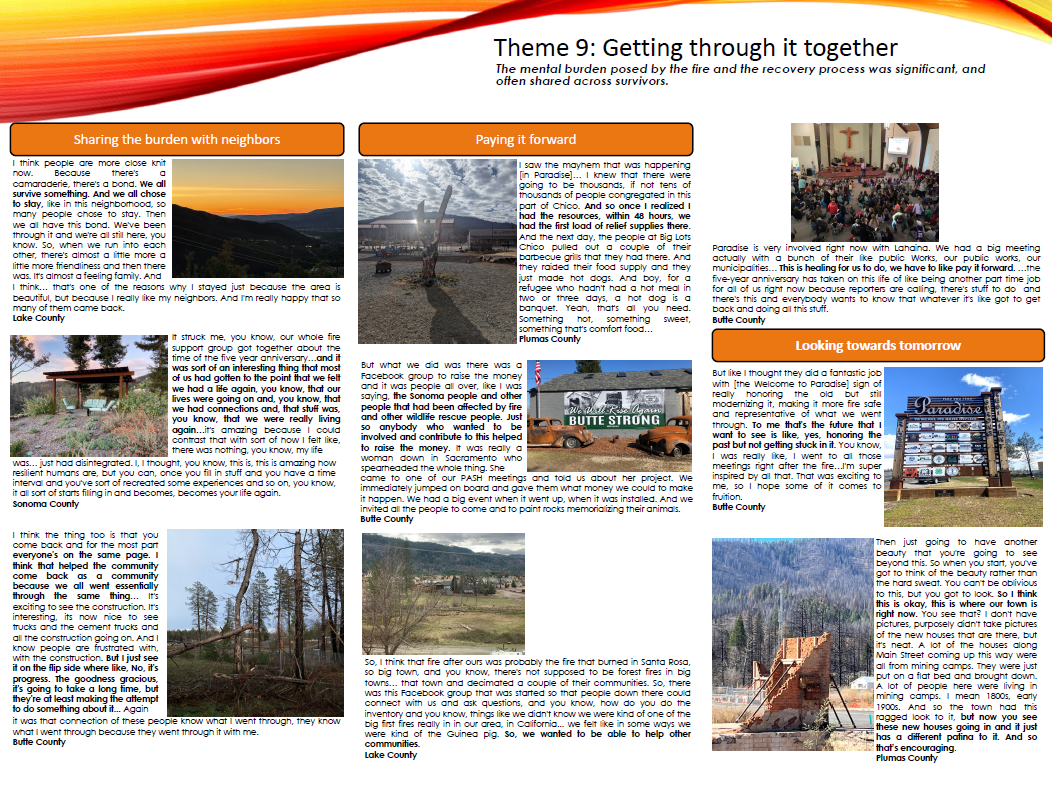
The mental burden posed by the fire and the recovery process was significant and often shared among survivors.
Maui
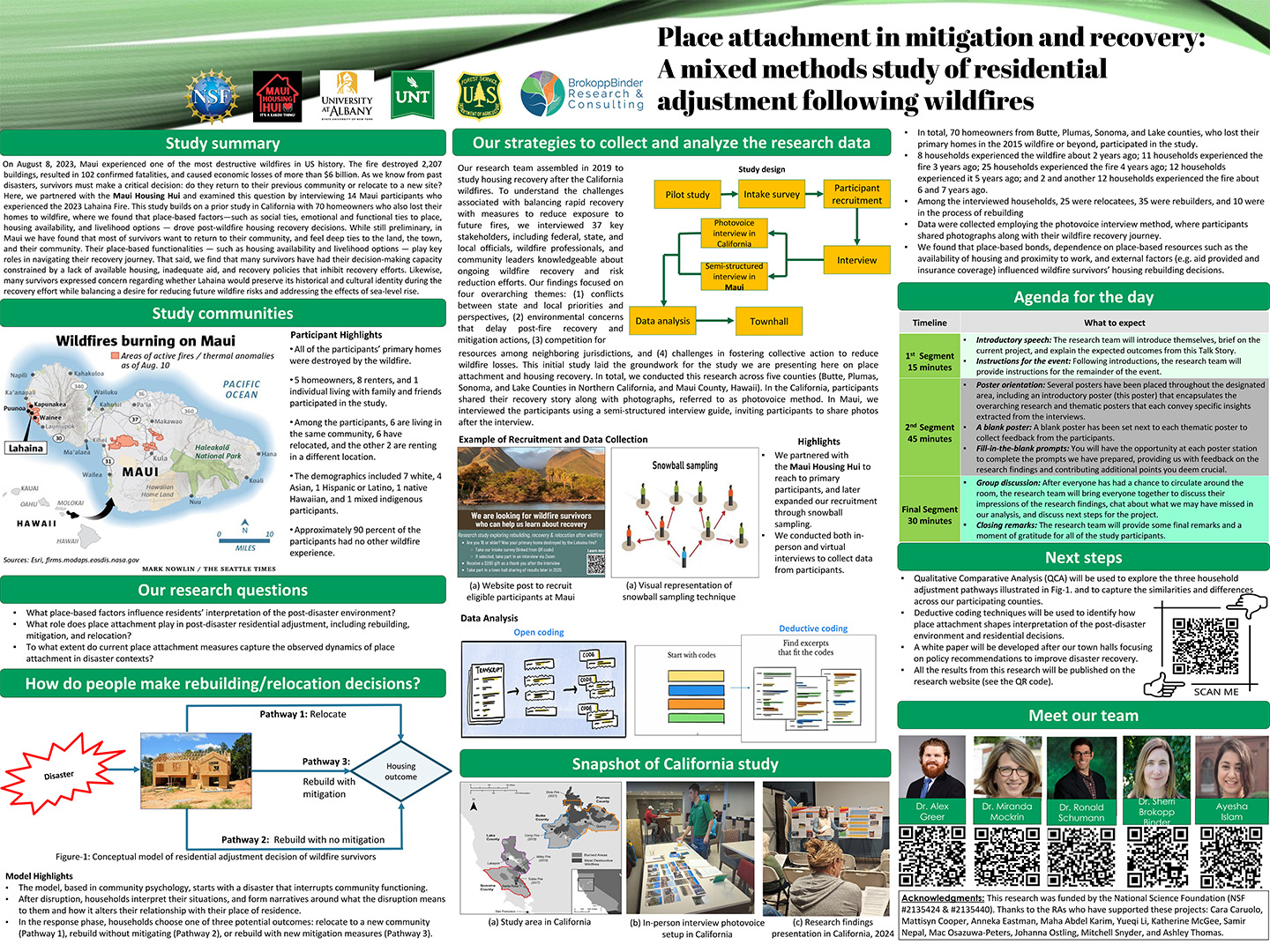
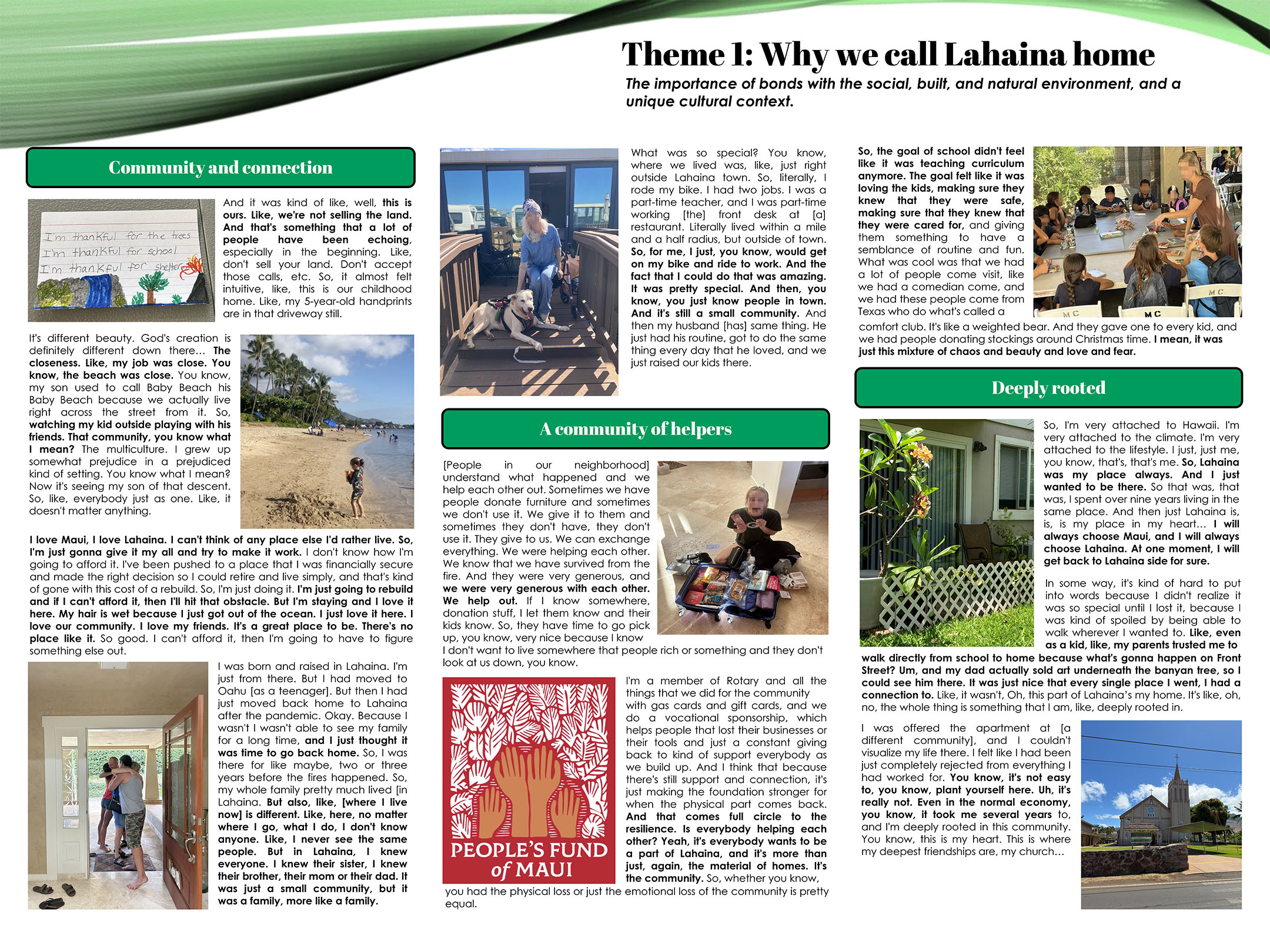
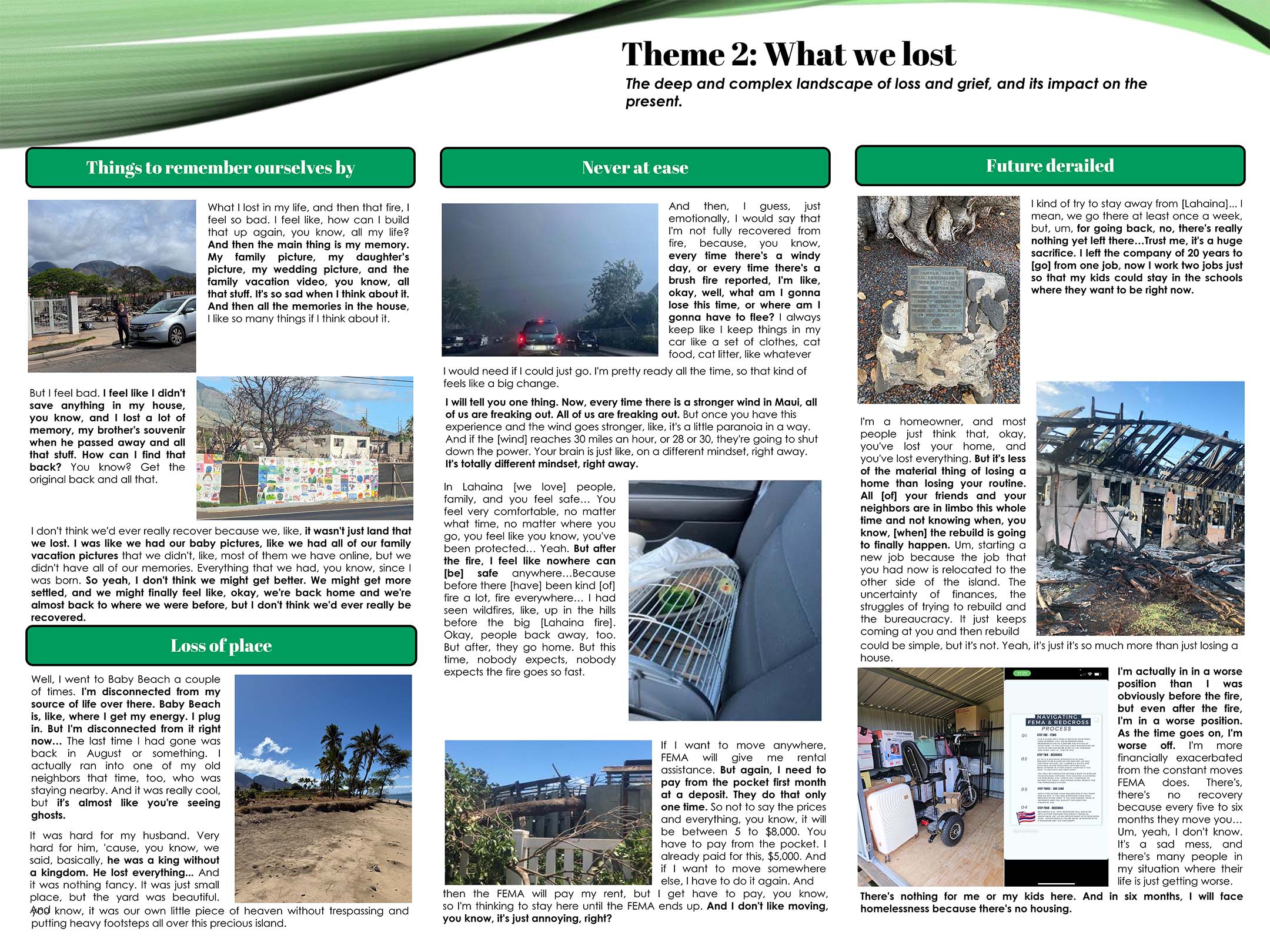
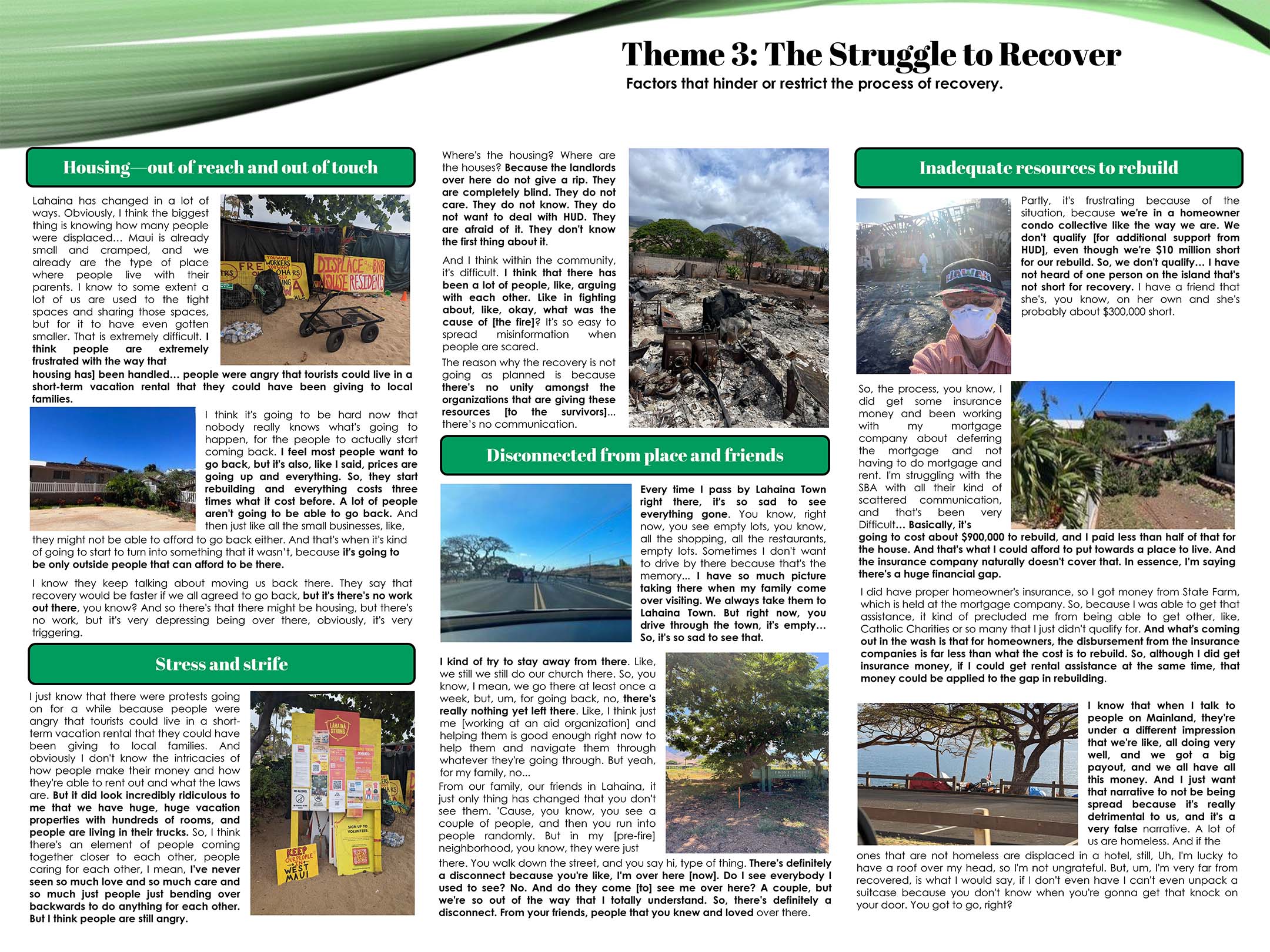
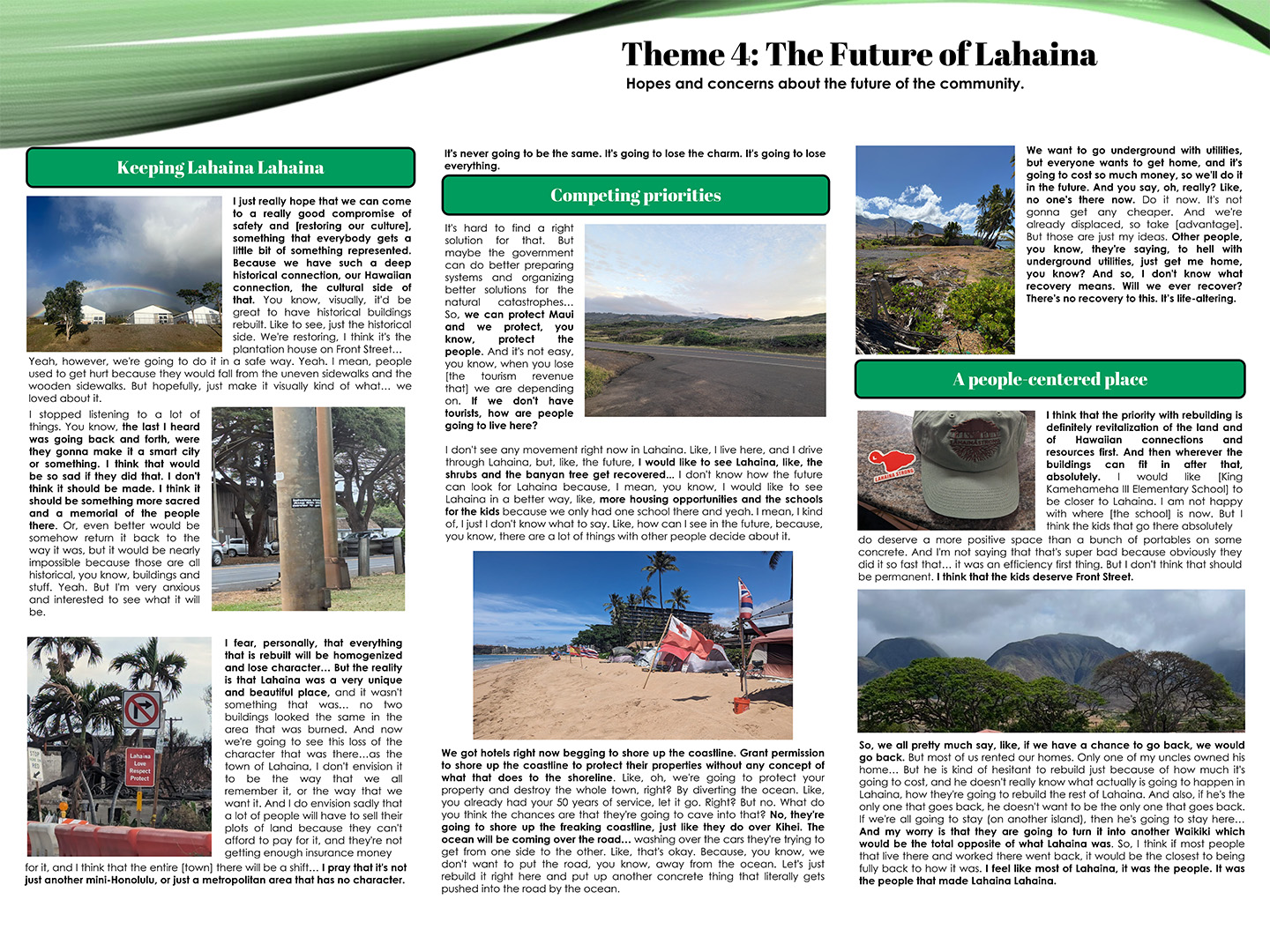
Research Team
Alex Greer 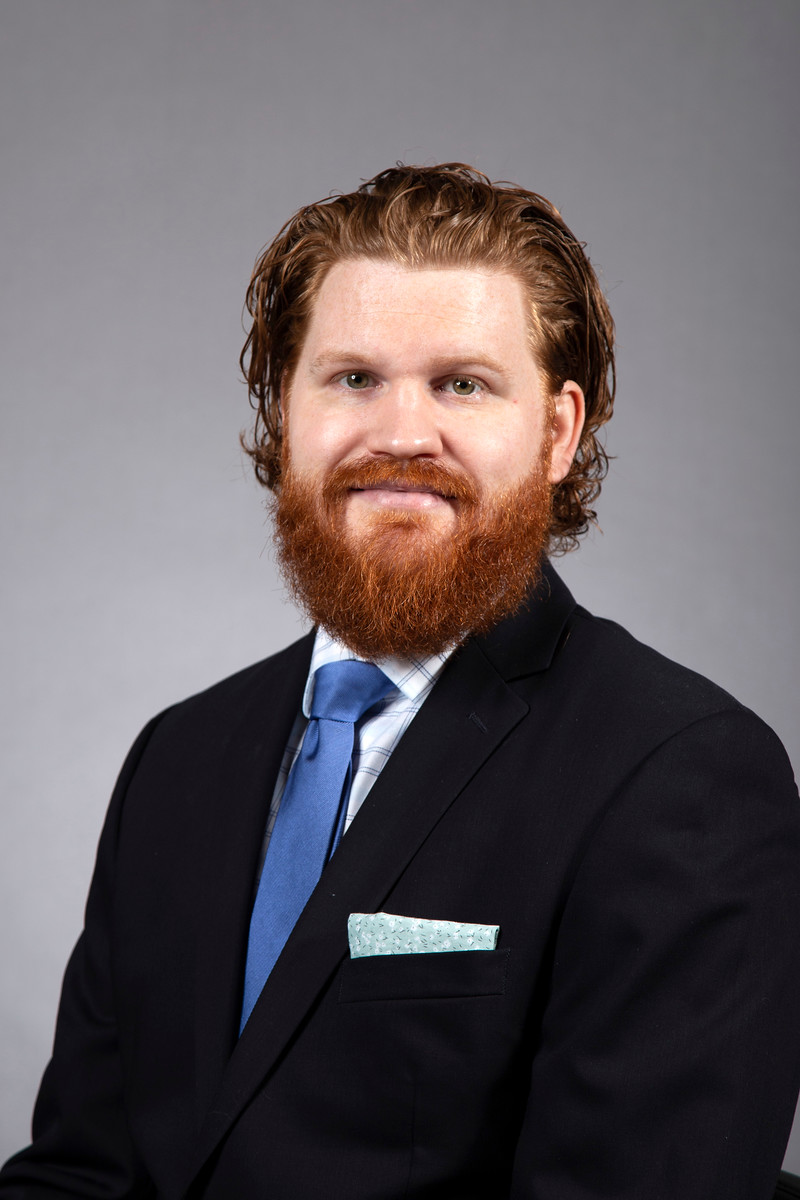
Bio: Dr. Alex Greer is an Associate Professor in the College of Emergency Preparedness, Homeland Security and Cybersecurity at the University at Albany. His research interests include hazard adjustments, relocation decision-making processes, and organizational culture.
Email: agreer@albany.edu
Webpage: https://www.albany.edu/cehc/faculty/alex-greer
Ronald Schumann 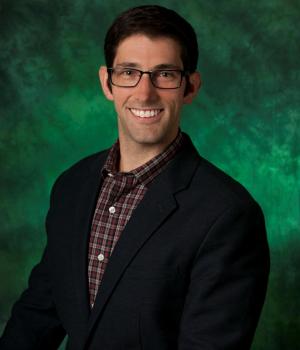
Bio: Dr. Ronald Schumann is an Associate Professor in the Department of Emergency Management and Disaster Science at the University of North Texas. A human geographer by training, his research interests include long-term community recovery after disasters, cultural memory, and risk perception.
Email: ronald.schumann@unt.edu
Webpage: /ronald-schumann-iii-phd
Miranda Mockrin 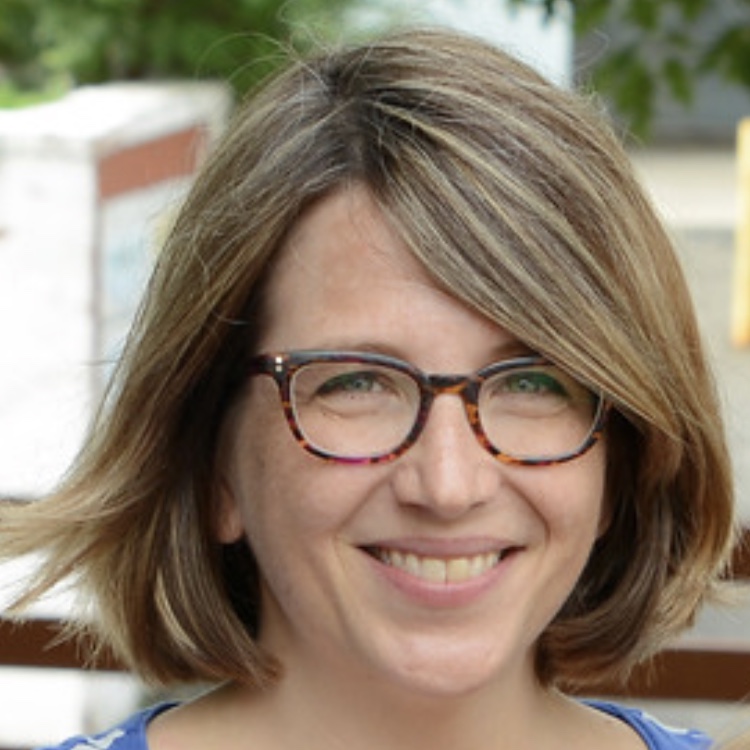
Bio: Dr. Miranda Mockrin is a research scientist at the USDA Forest Service's Northern Research Station based in Baltimore, Maryland. She studies conservation and land use, combining ecological and social science. Research projects include mapping the growth of the wildland-urban interface (WUI) over time, examining rebuilding after wildfire, and studying ecological effects of housing development.
Email: miranda.h.mockrin@usda.gov
Webpage: https://www.fs.usda.gov/research/about/people/mhmockrin
Sherri Brokopp Binder 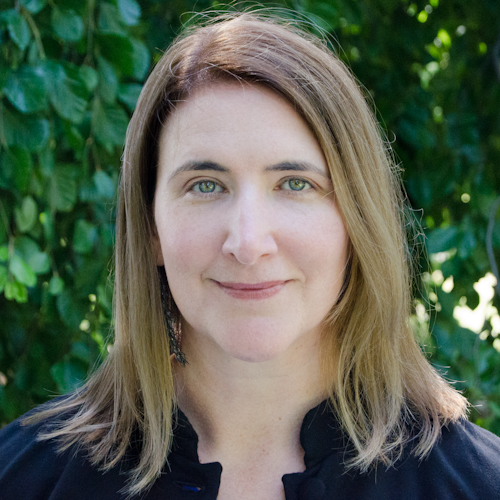
Bio: Dr. Sherri Brokopp Binder is the President of BrokoppBinder Research & Consulting, located in Allentown, Pennsylvania. A community psychologist by training, her research is focused on post-disaster relocation with an emphasis on home buyout programs and housing recovery.
Email: sbinder@brokoppbinder.com
Webpage: https://www.brokoppbinder.com/team
Ayesha Islam 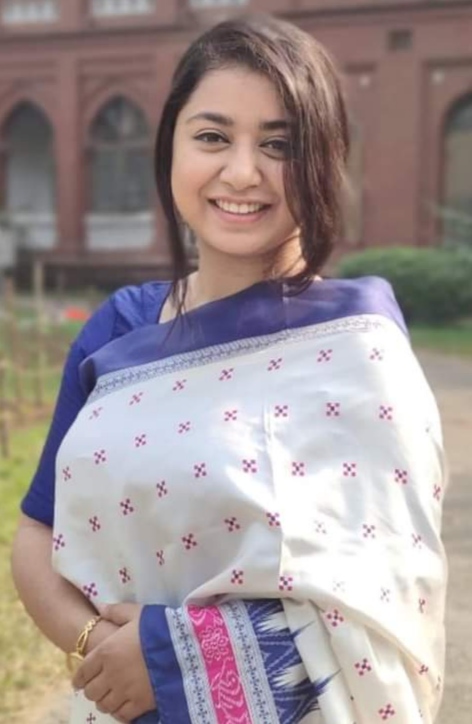

Bio: Ayesha Islam is a Ph.D. student in Information Science at the University at Albany, State University of New York. Ayesha holds a master's degree in Disaster Science and Management. Her research interests include hazard adjustments, relocation decision making processes, risk assessment, vulnerability assessment, and spatial analysis.
Email: aislam2@albany.edu
Webpage: https://www.linkedin.com/in/ayesha-islam-04b47716b/
Anneka Eastman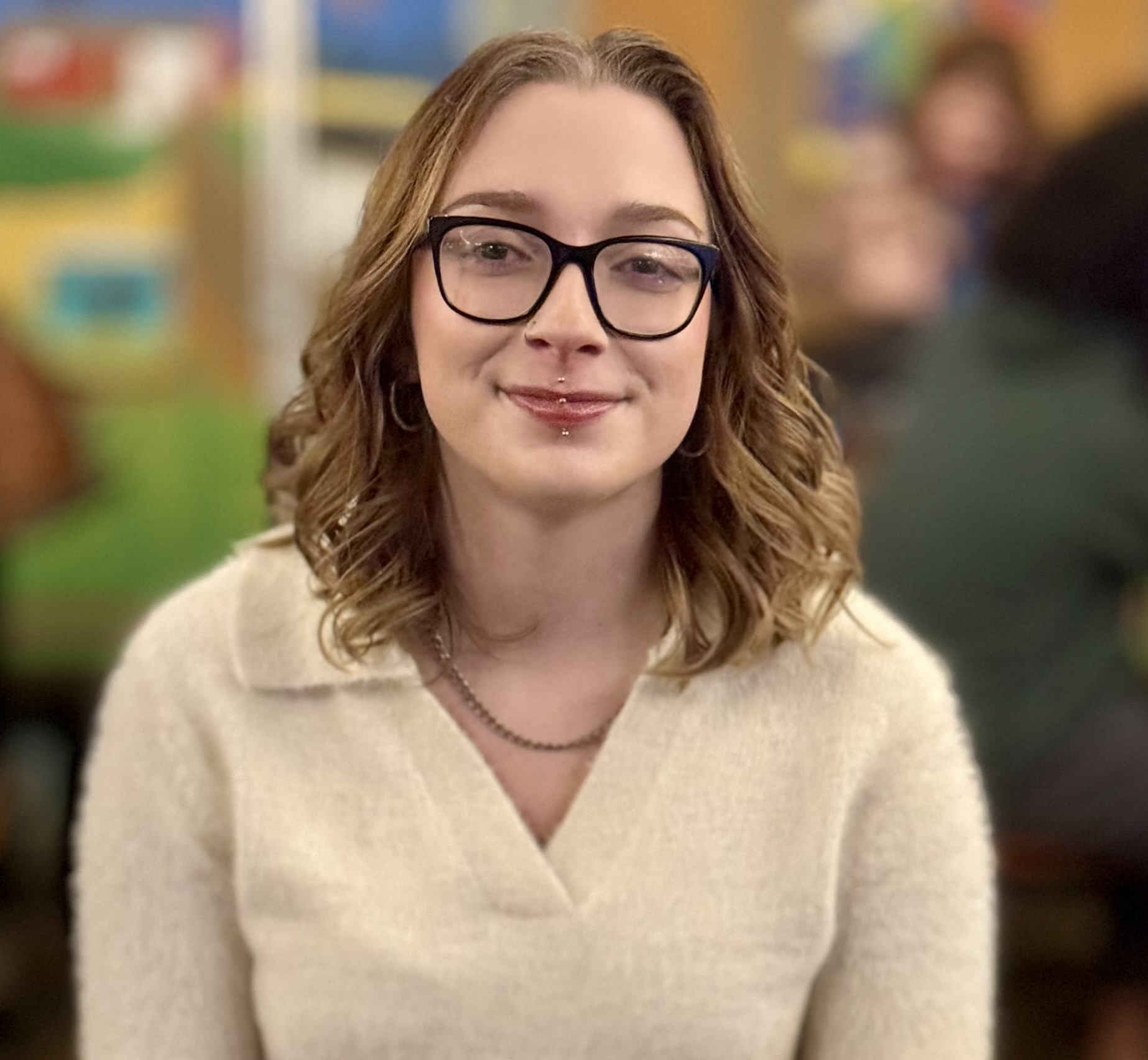
Bio: Anneka Eastman is a senior undergraduate Anthropology major at the University of North Texas. Her research interests include cultural dimensions of community recovery and indigenous perspectives on emergency management.
Email: annekaeastman@my.unt.edu
Webpage: https://www.linkedin.com/in/anneka-eastman-835190226/
